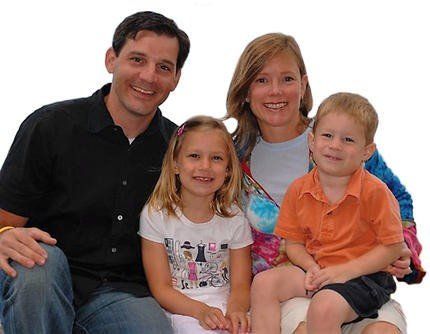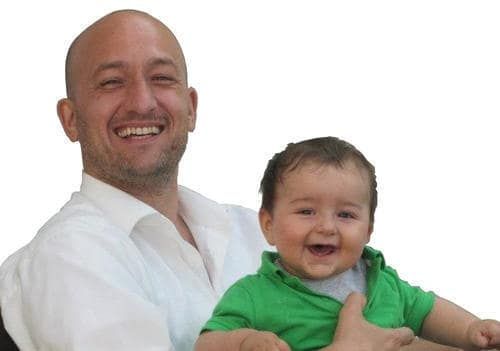
We are inclined to think that conditions in Britain today are some of the hardest Christians have ever had to face. At least, that is how it appears from the way we often talk. Clearly, this exaggerates the situation, but we all realise there is cause for concern as we look at our society.
Some who feel most alarmed are the parents of young children, who face the daunting prospects of bringing them up in the modern world. The books and articles being produced on ‘parenting’ and the family are evidence that this concern is widely felt and, more important, that a determined effort is being made to help Christian parents. Certainly it is vital that pastors and churches should search the Scriptures for the appropriate biblical principles for bringing up children, and apply them to our present situation.
Family breakdown
Why is this so vital? First of all, because the Bible lays great emphasis on the matter. The evidence for this will appear later in this series. But it is no exaggeration to say that, according to the Bible, the careful nurture of children is one of the Christian’s greatest responsibilities.
The Bible, of course, gives us directions for the Christian upbringing of our children. In every area of life we are in danger of being ‘conformed to this world’, that is, of allowing our attitudes and behaviour to be shaped by current opinions.
We must not assume that, because our children are reasonably well brought up according to generally accepted standards, we are fulfilling our obligations to God. Nor does it necessarily mean that our children are being trained up in the ways that God would have them go. This gives us another reason for careful attention to the Bible’s teaching.
Speaking from wide experience, the authors of The church and the child (A. and C. Capon, Hodder, 1967) say: ‘It is a truism to say that we are witnessing in these days the breakdown of the home. What is not so well understood, even within the church, is that we are also living through days of the failure of the Christian home … There remains little to distinguish the Christian home from that of the average good-living pagan’.
Sidetracked
One of the subtle ways in which Satan tries to sidetrack believers is to get them so taken up with some duties that they neglect others. There is undoubtedly a danger that some Christians become so involved in Christian service that they overlook their own children.
Nearly every church seems to rely on a willing, dedicated nucleus of members. But what is happening to their families? When the whole church does not function as a family, the individual families of the church are in danger.

Says the Song of Solomon (1:6): ‘They made me the keeper of the vineyards, but mine own vineyard have I not kept’. It is so easy to fall into this trap. The writer has heard it stated as a generally accepted truth, that the worst behaved children are the children of ministers and missionaries. If this were true it would, of course, be both scandalous and unscriptural, for we read: ‘If a man does not know how to rule his own house, how will he take care of the church of God?’ (1 Timothy 3:5).
Materialism
These are good reasons for a renewed study of what the Bible has to say on parenting, but there are others, namely, the particular problems presented by our modern world. These are almost too numerous to mention, but they include the materialism and humanism that characterises today’s society.
Materialism is the outlook which views material things as more important than anything else. It is widespread, even among professing Christians. Many parents today think it more necessary to earn extra money to give their children ‘the best’ of things, than to show their love in more personal ways.
Accepted wisdom says that children must have the things they want: the toys, the sweets, the clothes, and so on. So Dad must do more overtime and Mum must go out to work. Parental love is not shown in spending time with children, nor in building deep personal relationships with them, nor in being close enough to guide and steer them through the dangers of life. Instead, it is shown by giving them material gifts. How vital it is to get back to biblical standards!
At a deeper level, there is the clash between the teachings of the Bible and the assumptions of today’s secular humanism. This, as we shall see, affects the whole approach to discipline.

The family in the Bible
What, then, is the place of the family in Scripture? There is no doubt that the Bible sees the family as the basic unit in society. Over against the individualism and loneliness of our culture, we are told: ‘God sets the solitary in families’ (Psalm 68:6). It is not God’s purpose for men and women to live as isolated units, but for them to live in the warm bonds of family life.
The origin of the family is found in Genesis 2:24, along with the origin of marriage. God saw that it was not good that the man should be alone — a basic principle still — so he made the woman and brought her to the man. ‘Therefore a man shall leave his father and mother, and be joined to his wife: and they shall become one flesh’. They are no longer two separate individuals; with the children that are born to them, they constitute a family.
Although polygamy was sometimes practised in Old Testament times, the Lord Jesus makes it plain that monogamy is God’s creation pattern. He repeats the verse from Genesis cited above and adds: ‘So then, they are no longer two but one flesh. Therefore what God has joined together, let not man separate’ (Matthew 19:4-6). Reinforcing the point, Paul commands that a leader in the church must be ‘the husband of one wife’ (1 Timothy 3:2, 12).
When the children are grown, they leave their parents and form new family units. This pattern of family life is seen clearly in Ephesians 5:22- 6:4 and Colossians 3:18-21, where Paul gives instructions concerning such matters. He speaks in terms of husbands and wives, parents and children. Here is the basic unit of society, and the sanctity of the family must be guarded and fostered.

Basis of society
According to the Bible, therefore, stable relationships in the family are the basis of a stable society. It is in the family that we learn to live with other people. The family is the training ground for personal relationships.
When God commands: ‘Honour your father and your mother’, he adds, ‘that your days may be long upon the land which the Lord your God is giving you’ (Exodus 20:12); that is, where children honour and respect their parents, and where there is an orderly and disciplined family life, there will be an orderly and stable society.
The evidence for the truth of this principle is all around us. Breakdown in the family has inevitable and visible repercussions in deprivation, crime, truancy and child neglect, not to mention the burden on society in the form of social security and housing support. The education system, industry and politics are all affected by the breakdown in family life.

Then, again, it is obvious that nothing has a greater influence on a child than its family. The early years of life are the most formative, and are spent almost exclusively within the family group. Here basic attitudes are learnt which remain throughout the rest of life. It is frightening to realise the responsibilities that lie upon parents in this respect.
Says a Christian psychologist, Dr James Dobson: ‘The proper time to begin disarming the teenage time-bomb is twelve years before it arrives. Perhaps the most difficult problems referred to me occur with the rebellious, hostile teenager for whom the parents have done everything wrong since he was born … for a psychologist, this problem must be approached as a physician views terminal cancer: “I can’t cure it now; it’s too late. Perhaps I can make its consequences less painful”’ (Dare to Discipline, Coverdale House, 1970).
From the very beginning parents must positively seek to bring up their children in the nurture and admonition of the Lord. Proverbs 29:15 warns: ‘A child left to himself brings shame to his mother’.

Head of the family
Mention of the mother needs to be balanced by remembering that, in Scripture, the father is the head of the family. This follows by necessary consequence from the words of 1 Corinthians 11:3: ‘But I want you to know that the head of every man is Christ, the head of the woman is man, and the head of Christ is God’.
The reason for mentioning this is not to belittle the role of the mother. It is to stress that, as the head of the family, the father has the ultimate responsibility for the upbringing of children.
The father must not leave all the responsibility to his wife. It is true that he is likely to be away for most of the working day. But that is all the more reason for him to take his full share of responsibility when at home. A testy, ‘Do see to those children dear’, from somewhere inside a newspaper, is not acceptable.
Nor is he just someone who appears with a heavy hand when all other disciplinary measures have failed. He must spend time with the children himself, and be the strength and support of his wife in the demands the children make upon her.
Parents have a great responsibility because God has entrusted children to their care. In Genesis 33:5 Jacob gave a perfect reply to Esau’s question: ‘ “Who are those with you?” And he said, “The children which God has graciously given your servant”.’ Next month, we must move on to consider in greater detail the responsibility of Christian parents.









